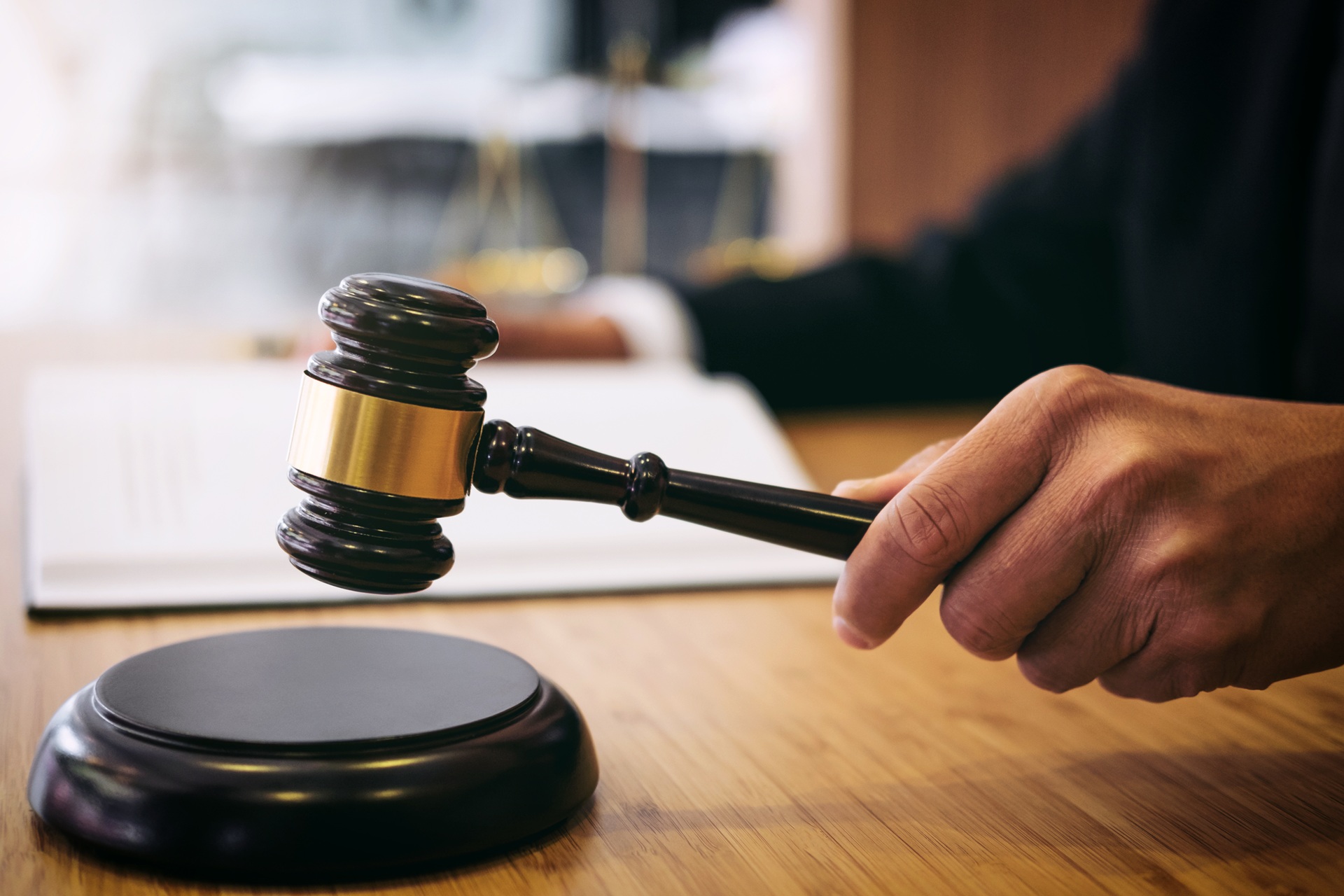Types of Domestic Violence Protection Orders in Washington State
Disagreements between loved ones are natural, especially when the couple has been together for several years. Minor disputes will erupt from time to time, and the parties are usually to work through their differences and move forward from the issue with time. While spouses, dating partners, and other people in close relationships have their own coping mechanisms and methods for resolving conflict, there are times when an unhealthy dynamic may develop. When one partner attempts to limit their partner’s independence or autonomy, either through physical violence, emotional manipulation, or coercive control, the relationship can become detrimental to both spouses. Unfortunately, many people who experience domestic violence, harassment, or other forms of abuse at the hands of an intimate partner feel isolated and even afraid to seek help. Even though advocacy groups have helped to spread awareness about the realities of domestic violence, many survivors still feel stigmatized or ashamed of “letting” themselves be abused. This sense of shame can prevent survivors from escaping unhealthy or even dangerous marriages or partnerships, putting them at increased risk of further harm.
If you have found yourself suffering physical harm, harassment, or other forms of abuse perpetrated by your spouse or dating partner, it’s essential to understand that you are not alone in your struggle. There are several legal protections you can obtain to keep you safe as you leave this unhealthy relationship. By enlisting the guidance of a trusted and empathetic Seattle domestic violence lawyer, you can breathe easier knowing that a dedicated legal advocate is looking out for your safety and best interests. Your divorce attorney will help you explore the various protection orders available to you and identify the best strategy to help you leave the relationship as safely and securely as possible. Let’s take a look at the different kinds of protection orders in Washington State and the steps you can take to secure these legal protections as you move into a brighter and more stable future.
What Constitutes Domestic Violence in Washington State?
Before exploring the various legal protections available to survivors of domestic violence and harassment, it’s important to take some time to establish the definition of the term “domestic violence.” According to Washington’s domestic violence law, “Domestic violence means physical harm, bodily injury, assault, or the infliction of fear of physical harm, bodily injury, or assault; nonconsensual sexual conduct or nonconsensual sexual penetration; coercive control; unlawful harassment; or stalking of one family or household member by another family or household member.” In other words, acts of domestic violence encompass far more than the intentional infliction of physical harm (i.e., hitting, kicking, slapping, etc.). Emotional manipulation, restricting a partner’s access to financial resources, or controlling their relationships with other friends and family members all constitute acts of domestic violence under this larger definition. It’s also helpful to understand that the term “coercive control” refers to “a pattern of behavior that is used to cause another to suffer physical, emotional, or psychological harm, and in purpose or effect unreasonably interferes with a person’s free will and personal liberty.” Many people are surprised to learn that acts of domestic violence are not necessarily physical—if your spouse or domestic partner is exerting power to prevent you from making your own choices, you may have the right to seek legal protection as you leave this unhealthy relationship. It’s best to start by discussing the specifics of your situation and exploring your options with a dedicated and compassionate Seattle divorce lawyer.

Protection Orders in Washington State
Within the last few decades, Washington lawmakers have taken steps to provide much-needed legal assistance to those seeking to leave abusive spouses and dating partners. While survivors of domestic violence are always at risk while they remain in the relationship, research has shown that the most dangerous time for a survivor is the time during and immediately following the separation from an abusive partner. The two-year period after the divorce or separation remains hazardous to survivors, as their abusive ex-partners may escalate their threats and attempts to regain power over the survivors. Fortunately, Washington lawmakers recognize the fragility and vulnerability of these situations. Survivors may petition the court for various protection orders that, once enacted, prevent abusers from contacting, harassing, or stalking the petitioner in any way. Under Washington’s newly streamlined filing process, you can use one form to petition the court for a protection order (rather than sorting through a pile of confusing forms to determine the type of protection order you need). Let’s take a look at the different types of protection orders you may choose to pursue depending on your unique circumstances.
Domestic Violence Protection Order (DVPO)
Most survivors of domestic violence find that petitioning the court for a Domestic Violence Protection Order (DVPO) works best to suit their needs and goals. Essentially, a DVPO is designed to protect those who have been “sexually assaulted, harassed, or stalked by an intimate partner or a family or household member.” A DVPO also provides protection for survivors of domestic violence, threats of domestic violence, or coercive control at the hands of a spouse, partner, family, or household member. When you file the petition for a DVPO, you may list the types of behaviors from which you are hoping to escape. For example, you can ask the court to prevent your abuser from coming within a certain distance of your home or place of employment. The person you are seeking protection from (known as the respondent) may also be required to vacate a shared residence, immediately cease all contact with you (including via text and social media), and stop harassing you in any way. Once the court approves the DVPO, the respondent may face the limitation or suspension of their child custody and visitation rights. If the respondent violates any of the terms listed in the DVPO, they may face severe penalties, like expensive fines or possible imprisonment.

Antiharassment Protection Order (AHPO)
If you are looking to remove yourself from a marriage in which you are constantly experiencing threats and intimidation, you may find that seeking an Antiharassmnet Protection Order (AHPO) suits your needs. Once granted, the AHPO prohibits your abuser (the respondent) from subjecting you to acts of harassment, intimidation, or coercive control. Moreover, the respondent may not contact you in person, by phone, or online to intimate or harass you. Ultimately, the goal of the AHPO is to give you the space and freedom you need to leave an unhealthy relationship and finalize your divorce or legal separation without worrying about the threats and intimidation tactics of an abusive ex. Enlist the guidance of an experienced and caring Seattle divorce lawyer to learn more.
Stalking Protection Order (SPO)
Sometimes, an angry or controlling spouse or partner will show up at your home, place of work, or your child’s school to intimidate you and make you feel vulnerable. Even if they do not make physical or verbal threats against you, stalking is a form of harassment and intimidation that you have the right to escape. When you petition the court for a Stalking Protection Order (SPO), you can request that the court prevent the respondent from following you or appearing in designated places to intimate, threaten, or frighten you. Once the SPO is in place, you can feel more secure in your movements and bodily autonomy as you move through the divorce or legal separation process. No matter what your specific goals may be, you can trust that working with a dedicated attorney for harassment will keep your future as safe and secure as possible as you take the steps you need to leave the unhealthy relationship in the past.
If you need help securing an order of protection in King County or Pierce County, the dedicated and caring divorce and domestic violence attorneys at the Hemmat Law Group are here to assist you. Please call our Seattle office today at (206) 682-5200 to discuss your options for keeping yourself and your future as safe as possible.
The Hemmat Law Group (HLG) was founded in 1994 by Steven Amir Hemmat, a former DOJ Trial Attorney. We specialize in family law, supporting victims of the legal system.
The Hemmat Law Group help good people in bad situations.
Our lawyers provide expert legal advice connected to protection orders, including in cases of domestic violence, stalking, and neighbor disputes. Contact us today.













